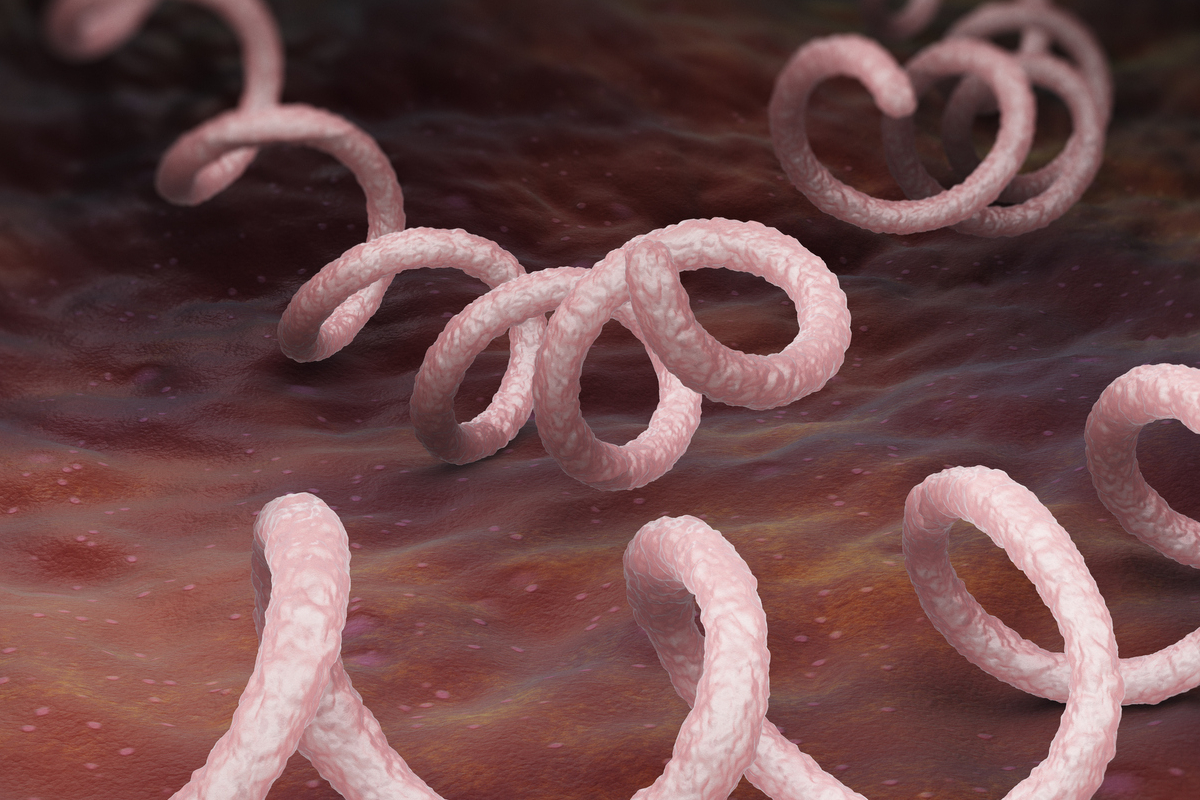The Lancet and other reputable medical publications have sounded an alarm – the number of babies born with syphilis is increasing every single year. The trend has been observed across the US, as well as in some other countries. The figures are shocking in some areas – the state of Mississippi saw a 900 per cent increase in the number of babies born with congenital syphilis over the past five years.
These findings are coming after a prolonged time period with stable, low numbers of congenital syphilis infections.
What’s congenital syphilis and why are the current statistics so troublesome? What has happened to contribute to such a sharp increase, given the fact we have more information than ever before and readily accessible healthcare services?
What Is Congenital Syphilis?
Syphilis is a sexually transmitted disease that’s caused by a bacterium. That disease-causing agent can be passed from mother to baby during the pregnancy. In such instances, the condition that the infant develops is called congenital syphilis.
In recent years, congenital syphilis has more than tripled in various parts of the world. The number of new cases reported in the US in 2020 is the highest one since 1994.
There are several reasons why congenital syphilis is so scary.
When the bacterium is passed on to the baby during a pregnancy, it can contribute to both miscarriages and stillbirth.
Babies born with congenital syphilis may have an array of health complications including bone deformities, jaundice, meningitis, brain problems, nerve problems, blindness, deafness, enlarged liver and severe anaemia.
Needless to say, not all children who have congenital syphilis are going to experience such serious health problems. The risks of untreated syphilis in a future mother, however, should never be underestimated.
Reasons Why Congenital Syphilis Is on the Rise
As you’ve probably guessed already, syphilis can be treated effectively like all other STDs caused by bacteria. Antibiotics can deliver excellent results, which is why one may wonder about the reason for the sharp increase in the number of congenital syphilis cases.
Inadequate prenatal care is often being blamed for the latest negative trend. Sexual health initiatives are severely lacking in many countries. Prenatal care is typically supposed to include STD panels. When medical facilities are understaffed, however, healthcare workers may take shortcuts that will have a serious impact on patients.
A recent study has also found that congenital syphilis is more common among the women who have limited access to prenatal care and among those who seek prenatal care only after the pregnancy has progressed for a couple of months.
Syphilis, like other STDs, can remain hidden for long periods of time. Many people who are infected will be free from symptoms. Unless these people are in the habit of getting regular STD testing, they’ll have no way of knowing about the infection.
Very often, pregnant women learn about the STD when they experience a problem. Unfortunately, congenital syphilis can lead to lethal outcomes – a tragedy, given the fact that the condition is completely treatable.
What Pregnant Women in Singapore Need to Know
Are you pregnant and worried about passing an STD to your child? You can easily do the right thing by getting screened. Both pre-conception screening and pregnancy STD panels are readily available in sexual health facilities like Shim Clinic. Knowing your status will empower you to do what’s best for you and your baby.
All pregnant women should get tested for syphilis, HIV, hepatitis B and hepatitis C, chlamydia and gonorrhoea – STDs that can cause complications. Even if you’re not pregnant, do get screened. Some of these conditions can lead to fertility issues that will make a pregnancy difficult or even impossible.
Syphilis can be treated during a pregnancy. Antibiotics that aren’t going to cause harm to the baby do exist. A doctor will assess the situation to come up with the best course of action. Receiving treatment during the pregnancy is the best way to reduce the risk of congenital syphilis developing in your child.
Even if a baby is born with congenital syphilis, there are still things medical professionals can do to reduce the risk of health complications. Usually, a 10-day course of antibiotics is going to be administered in the hospital right after delivery. Follow-up visits will also be scheduled to assess baby’s progress and make sure that the infection has been cleared completely.
Having syphilis and not knowing doesn’t turn you into a bad person. There’s still a lot of stigma surrounding STDs in Singapore. Those negative societal tendencies keep many people from seeking medical assistance and accepting full responsibility for their reproductive health.
The one thing you need to understand is that it’s never late to seek assistance. Syphilis is treatable. Congenital syphilis is also treatable. The sooner you find out what’s going on, the more tools you’ll have at your disposal. Equipped with enough information and medical help, you can enjoy an easy and safe pregnancy.
Contact Shim Clinic or visit us during working hours every day of the week to learn more about syphilis and other pregnancy-affecting STDs. We can also recommend and administer the right screening panel. Our knowledgeable staff members will consult you and answer all of your questions in full confidentiality.

